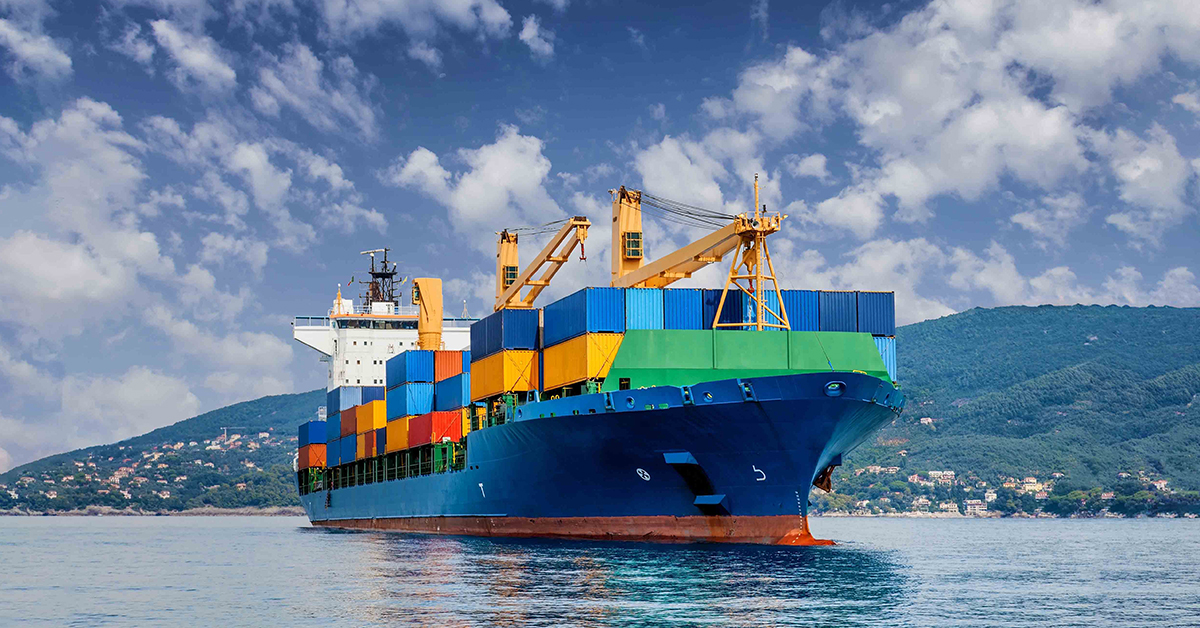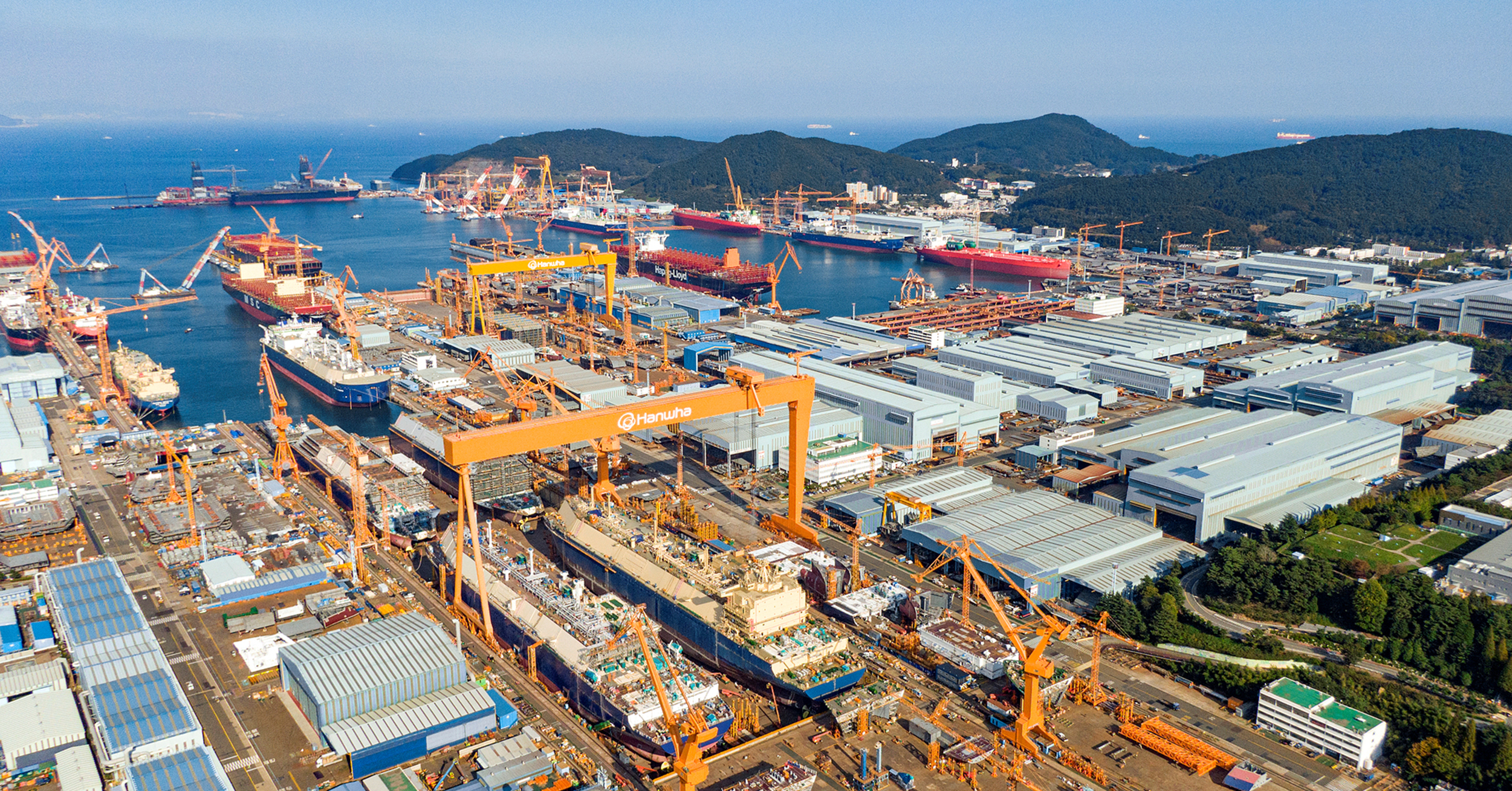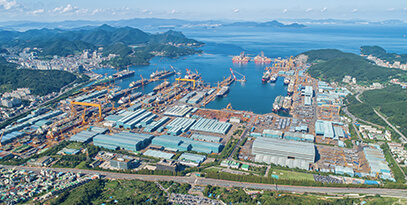Green shipping:
The next frontier in sustainable supply chains

 Insights into the multidimensional
Insights into the multidimensional
energy transition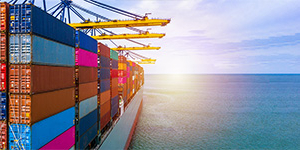
 Growth models for
Growth models for
renewables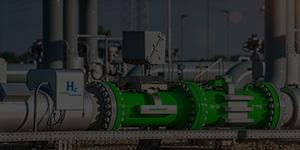 How hydrogen is reshaping
How hydrogen is reshaping
the energy landscape
This series sheds light on the key discussions held at CERAWeek 2024, exploring new pathways for a multidimensional energy transition. Through insights from trailblazers at Hanwha Qcells, Hanwha Ocean, Hanwha Power Systems, and PSM, discover how Hanwha is laying the groundwork by delivering transformative decarbonization solutions in a dynamic energy landscape.
Despite the worsening effects of climate change, global carbon emissions have only increased. Decarbonization strategies urgently require implementation at every level of the supply chain to achieve net zero emissions. This was one of the messages that was brought into sharp focus at this year’s CERAWeek 2024 conference, where energy industry players gathered to discuss pressing issues relating to the energy transition and how to accelerate decarbonization efforts. This involves identifying and reducing emissions across manufacturing, transport, and end use, as addressing each link in the supply chain is crucial for the decarbonization effort as a whole.
Green shipping for a greener supply chain
After energy, the transport sector is the second-greatest source of carbon emissions, responsible for roughly one-fifth of CO2 pumped into the atmosphere. Vehicle manufacturers now offer a range of electric vehicles for the consumer market, and though this has had a sizable impact, it alone is not sufficient. The carbon emitted in the production and shipment of electric vehicles also needs to be addressed.
The shipping industry in particular represents a crucial piece in the decarbonization puzzle. With over 90% of goods transported by sea, finding sustainable solutions to shipping will go a long way to achieving net-zero emissions across supply chains. The fashion industry serves as a useful example, as pressure from consumers to go green has encouraged some businesses to choose sustainable shipping options for the transport of products.
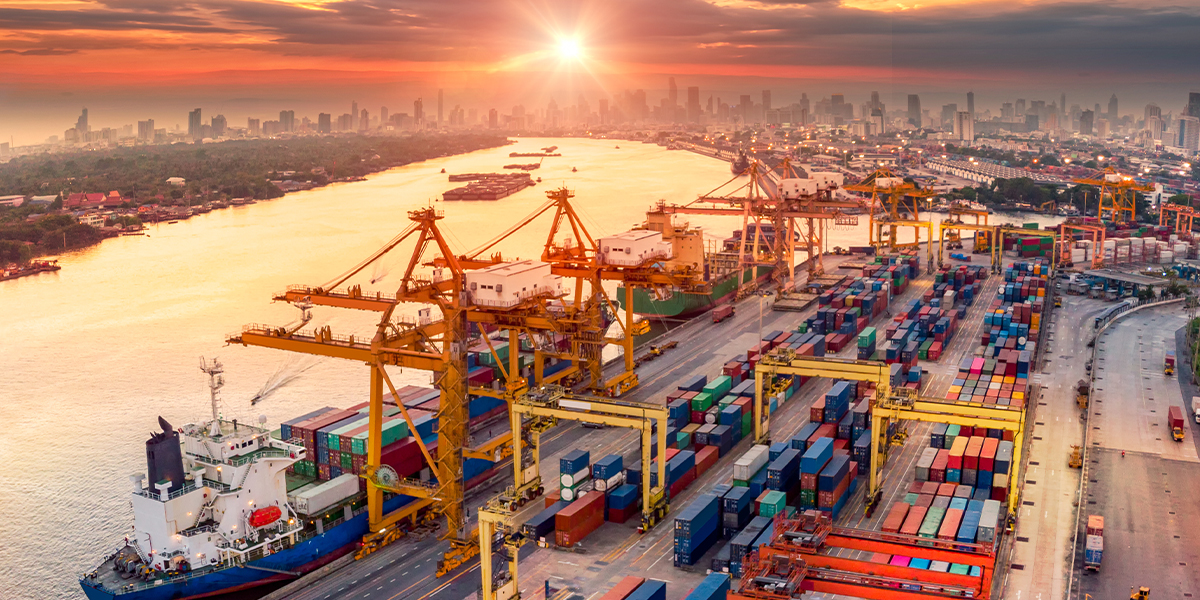
However, widespread adoption of green shipping has yet to occur due to a network of conflicting factors. Although many fuel alternatives are being explored, including hydrogen, ammonia, methanol, and biofuels, there is as yet no leading contender. This in turn has led to a slow development of alternative fueling infrastructure and other assets. Without guarantees that green ships can easily be fueled, shipowners are hesitant to make the large capital investments required to order new green ships. These and other related factors have resulted in market gridlock surrounding these newer technologies. Overcoming these obstacles and making broad use of green shipping across supply chains possible will require breakthrough innovations and bold solutions from shipping companies willing to take the initiative to become first movers in the market.
Hanwha Ocean, a leading global shipbuilder with cutting-edge green ship solutions, is committed to spearheading innovation to help pave the way for maritime decarbonization. “We recognize the urgency to decarbonize but also the challenges of doing so, with a vicious cycle of industry uncertainty and weak demand making it hard to scale solutions,” says Hyoung-Seog Kim, CTO of Hanwha Ocean.
Driving stability and future growth
To bring maritime decarbonization to scale and offer economically viable solutions, Hanwha is innovating green shipping technologies, as well as preparing to own and operate its own fleet of cutting-edge, future-ready vessels that will serve as a strong proving ground for carbon-neutral and carbon-free vessels. The company anticipates this bold approach will help break the current gridlock within the green shipping market. According to Kim, “At Hanwha, we have a detailed roadmap to bring carbon-free and electrified ships to scale. By optimizing our green ship solutions and tailoring them to our customers’ decarbonization needs, we are aiming to bring highly efficient and autonomous vessels to market. This will help industries achieve a carbon-neutral supply chain.”
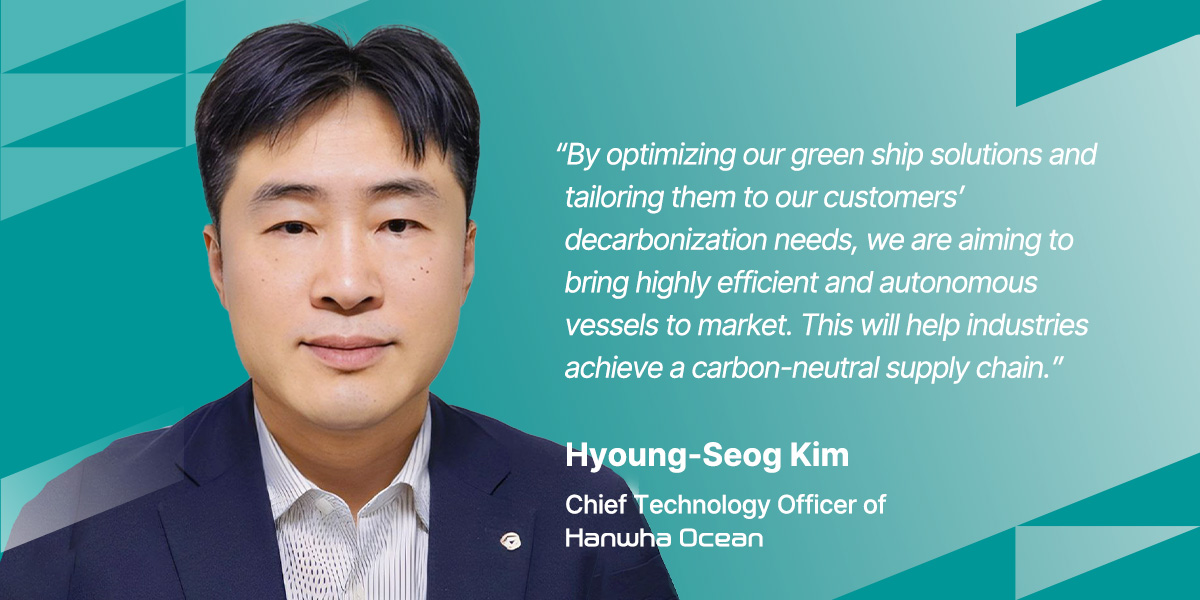
This roadmap also includes the construction of low and zero-emission carriers. Hanwha has received approval from the American Bureau of Shipping for the construction of the first large-scale, carbon-emission-free liquefied natural gas (LNG) carrier. This will be equipped with an ammonia-fueled gas turbine that is expected to substantially reduce carbon emissions by operating on either ammonia, natural gas, or a mixture of the two, and that will be able to eliminate the need for oil entirely during ignition. The acquisition and launch of Hanwha Engine and its expertise in low-speed sustainable engine development also means Hanwha now has the synergetic capabilities to address shipbuilding needs at every level, enhancing operational efficiency and value.
Stepping up efforts on sustainable practices across supply chains, even in just the shipping industry, will not be accomplished swiftly or easily, but the time to act is now. Hanwha aims to be a driving force in this effort. With its range of available green technologies, and with further initiatives underway, the company remains committed to delivering tangible solutions that can help accelerate decarbonization across supply chains.
Coming Soon!


